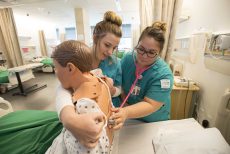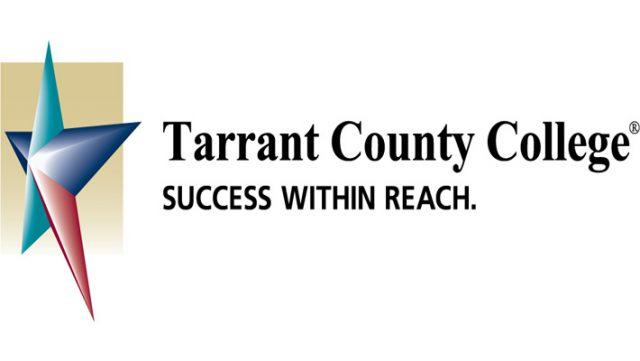By Lee Mendez/ reporter

Photos by Peter Matthews/The Collegian
Prospective health care professionals face stiff competition for admission at TRE.
TRE’s Center for Health Care Professionals offers students a challenging mix of classroom instruction and real-world environment training.
The program, which offers 15 accredited programs for nursing and allied health professions, has fierce competition for entry. Out of 560 applications for the previous incoming class, only 150 applicants were chosen for the program. With such a high demand for the program, the entry quota was raised to 180 for next fall.
Christina Liner, a student success coach who interacts with many potential applicants, sees a diverse group of students apply each semester. Liner said students often find the application requirements a little daunting. However, community service overrides their reservations.
“The one thing they all have in common, though, is that they all want to help,” she said.

The application process, however, is just the beginning of a challenging journey that helps to shape aspiring healthcare professionals. Career and technical education academic advisor Cal Quigley IV tells potential applicants the program will require a significant amount of the student’s time and effort.
“We don’t recommend students work during the program since an average clinical day will begin at 6:30 a.m. and last until 6:30 p.m.,” Quigley said.
Between the long hours and additional study time students need for classes, Quigley said most students find it difficult to keep up with the demands of a part-time job as well.
The nursing program includes coursework that will develop nursing skills in a diverse area of fields that include adult, mental, newborn and women’s health. In addition to regular classroom work, students also have access to a mock hospital that gives them real-world simulations of situations they will encounter in their careers.
At the mock hospital, students can also perform their nursing skills on special “patients.” These patients are robotic dummies that simulate a variety of health issues and can “poop, pee and bleed,” Quigley said.
Aside from creating bodily fluids, Quigley stressed the importance of these robots as an essential tool that provides students a “safe environment to make mistakes.” Each health event simulation performed with these training robots is followed by a debriefing to allow students to ask questions and evaluate any training opportunities the scenario may have exposed.
Daniel Caldera-Flores, a computer science major turned potential health professional student, attended the Feb. 1 information session on TRE as he prepares to enter the program next fall. Flores said he attended the session to get any information that will ensure his application process goes smoothly.
Because nursing programs across the area have stiff competition for entry along with a higher cost of tuition, Flores said TCC’s low-cost tuition can’t be beat.
“The facilities are state of the art and new, and it’d be difficult to find something like this offered at this cost,” Flores said, referring to TCC’s tuition rate of $59 per credit hour for Tarrant County residents.
Quigley recommends students begin the application process early for admittance into the nursing program since its popularity is continually growing. Stiff competition also means an applicant must strive for a strong academic record, and Quigley warns that anyone wishing to apply should ensure their science courses have a grade of “B” or higher.
The current application period will end March 31 for entry into next fall’s session. Quigley said applicants don’t learn their acceptance status until early May, four to six weeks after the application deadline.
For more information about the admission process to the nursing program offered at TRE, set up an advising appointment by emailing Quigley at cal.quigley@tccd.edu.
























